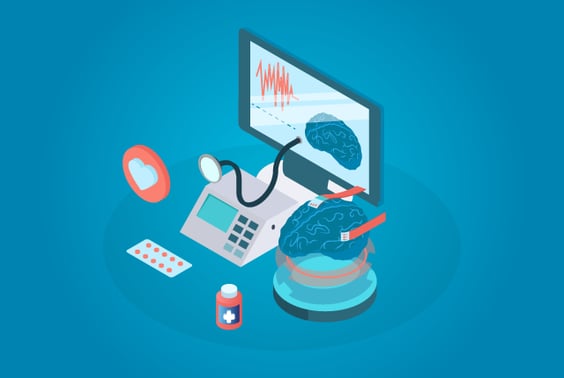
Machine learning can play a critical role in predicting the presence or absence of locomotor disorders, heart disease, lung disease, cancer, and many more. If such information is predicted well in advance, it can provide important information to physicians who can tailor their diagnosis and treatment per patient.
Evaluation of Machine Learning Project in Healthcare
- Patient Risk Identification: Machine learning algorithms can be used by healthcare providers to identify high-risk patients based on their historical data, assuming a high number of variables and data points.
- Pattern Imaging Analytics: Machine learning techniques find applications in radiology to help providers identify any subtle changes in scans that can be missed by the human eye to diagnose health issues at early stages. The use of pattern recognition and segmentation techniques on images such as retinal scans, bones, internal organs, and pathology slides enables faster diagnosis and better tracking of disease progression.
- Clinical Trial Research: Clinical trials in the biotechnology industry, regulators and non-profit healthcare foundations take benefit from the applications of machine learning. Technologies like next-generation sequencing have helped to understand disease mechanisms in a larger pool of patients and can help to better approach academic research.
- Predicting Epidemics: A machine learning model can be built to predict the nature of the spread of an epidemic in an area and determine where the next outbreak of an epidemic is most likely to occur. Factors such as geography, climate, demographics, and distribution of an affected area’s population have to be taken into account while training the model of machine learning.
- Maintaining Healthcare Records: In an electronic health record management system, machine learning can make it easier to provide automated image analysis, and clinical decision support and integrate telehealth technologies. To effectively apply machine learning techniques to patients’ medical records, healthcare informatics professionals must maintain data integrity by classifying and cleansing the data.
- Robotic Surgery: Machine learning technique is currently being integrated into robotic surgery for some purposes, such as improving surgical materials and the automation of suturing. Some surgeries, especially neurosurgery require a sensitive approach and go on for a long duration. Even the best surgeons end up fumbling. Since it is a matter of patient’s life and death, training robots to perform the surgeries is likely to guarantee more precision.
- Improved Radiotherapy: Machine learning has shown immense improvement in the field of Radiology. In Medical Image Analysis, machine learning can classify lesions into different categories, such as normal or abnormal and benign or malignant. Algorithms are being developed to differentiate between healthy cells and cancer cells, to determine the prognosis of cancer cells better so that more efficient radiation treatment can be performed.
- Healthcare Software Testing: Machine learning provides faster and easier test creation, simpler test analysis, and reduces test maintenance.


Post a Comment